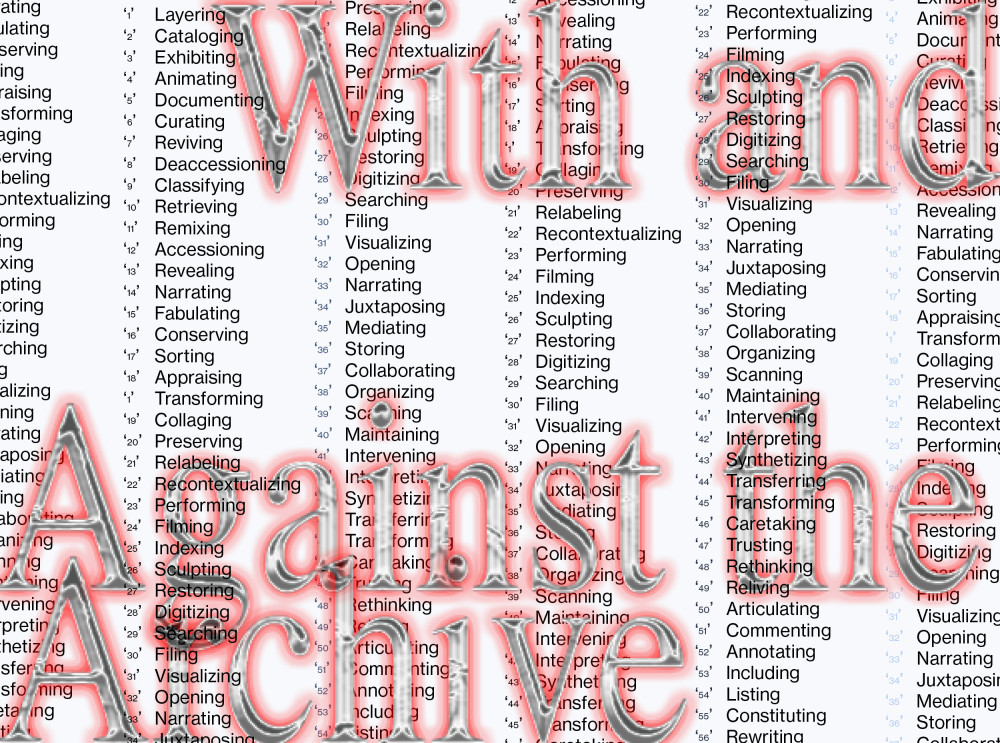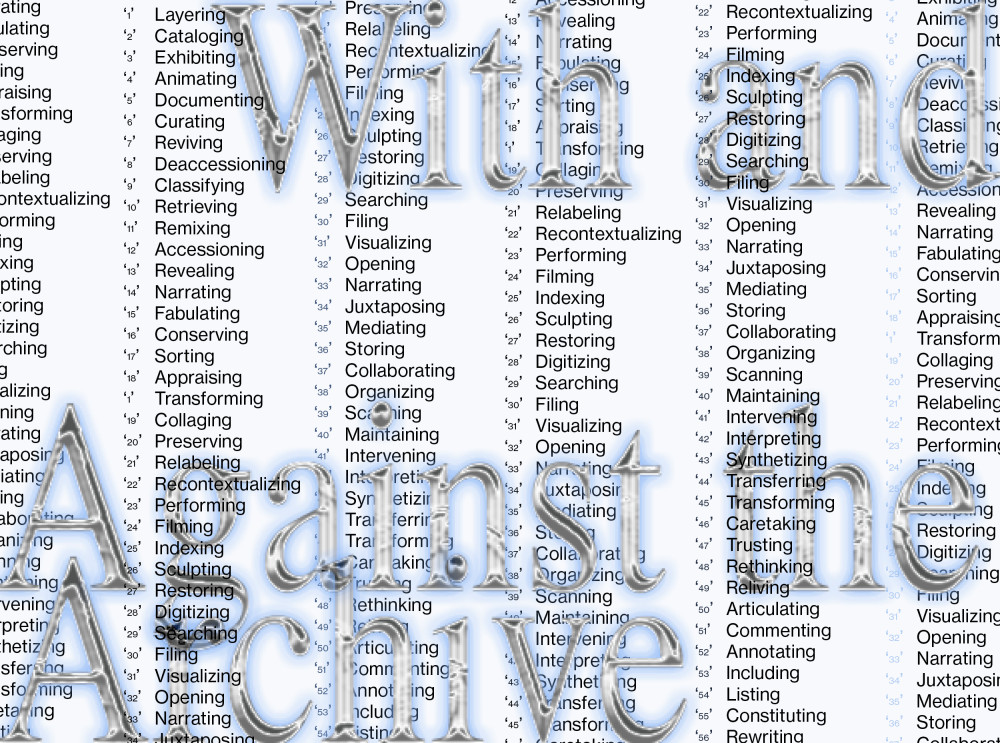Black Local History along the Slash of the Im/Possible


In this essay series, we address Saidiya Hartman’s call for working with and against the Archive by gathering the voices of (artistic) researchers who are concerned with strategies that do not seek to reproduce archival material and the power negotiations inextricably linked with it. Instead, they are engaged in the field of community-based archival work, exploring the phenomenon of absences within archives and related questions about data bias and their visualizations, investigating gaps in the archive through the lens of critical fabulation, and visualizing Switzerland’s colonial entanglements through artistic and experimental research practices.
All of them have the following questions in common: How might a feminist ethic of care/radical empathy in archives and archival practices be introduced? How might researchers reconcile the right to opacity and the right to be forgotten? How can the ongoing violence in the presence and/or absence of certain archival materials be addressed? What strategies can be provided for the archival infrastructure to speak or even «reveal» itself? What are the limits of archives, and what is the value of strategies that transgress or rebel against these limits? How can issues of consent and its withdrawal engaged with meaningfully? How can individuals whose data is represented be involved with an ethic of care?
With the title of this series, we adopt a phrase chosen for a reason: As valuable sources of knowledge and perception of reality, archives are structured collections. They often include multimodal materials, documents, and objects. However, archives are not just static entities perceived simply as an assemblage of hybrid materials. Other forms of immaterial memory storage exist, such as oral histories including narratives, experiences and feelings. All these different forms of archives are both significant and controversial as they play an essential role in interpreting the current social order and historical processes. Archives shed light on how power dynamics infiltrate the determination, creation, preservation and maintenance of artifacts, particularly in contexts characterized by colonial rule, racism, sexism, migration, patriarchy, feudal systems, and infrastructural development. Consequently, by making things actively forgotten, excluded or inaccessible, archives are active agents contributing to social amnesia.
In recent years, various approaches to work with and against the Archive have emerged in different fields with the intention of addressing these concerns. For example, critical reinterpretations of archival collections and the rediscovery of marginalized knowledge have become established forms of critique, resistance, and alternative historiography. Another example would be how radical politics of community archives could be the source of new theories and practices of emancipation. To create those critical accesses to archives, specific strategies such as multimodal methods, critical fabrication, re-enactments, rewriting, re-narrating, unlearning, deconstructing, visualizing and performance are now required, and they are being developed in the fields of, and in a combination of, humanities and art. We aim to build on such approaches.
The backstory of this Brand-New-Life focus begins in the last summer days of 2023, when a group of scholars at the Critical Media Lab (IXDM) in Basel began a set of conversations in which the need for an ongoing exchange on the topic of digital archives became apparent. This specific need emerged from the research framework of the SNSF-funded project Sharing Knowledge in the Arts: Creating the Publics We Need (2023–27), which explores knowledge-sharing practices aimed at instituting recursive, open and accessible publishing approaches in the art field. Part of the project is to build a digital archive drawing on material from net critical and cyberfeminist practices of the 1990s. In working with the artifacts and their digital representation several questions arose: questions related to social practices of communal openness, for example; the notion of openness that emerges through the creation of one’s infrastructures; openness from an institutional perspective and the related friction with the idea of absolute open access. However, it is not only about the issue of accessibility but also about the issue of archiving strategies that should provide and disclose this access. To sharpen these questions, perhaps even answer some of them or most certainly raise new ones, we immerse ourselves in the complex discourse with and against the Archives. Building on reflections on archives (such as Philipp Messner, Eine andere archivische Praxis, 2017) published on Brand-New-Life, this article series brings together a range of scholarly voices that explore alternative approaches to addressing knowledge gaps, articulating new narratives, and implementing artistic interventions as a means of challenging the status quo.
References
Michelle Caswell et al., «Critical Archival Studies: An Introduction,» Journal of Critical Library and Information Studies, 1, 2017.
Saidiya Hartman, «Venus in Two Acts,» Small Axe: A Journal of Criticism, 26, 2008, pp 1–14.
Lauren F. Klein, «The Image of Absence: Archival Silence, Data Visualization, and James Hemings,» American Literature, 85 (4), 2013, pp 661–688.
Angela Okune, «Open Ethnographic Archiving as Feminist, Decolonizing Practice,», Catalyst: Feminism, Theory, Technoscience, 6 (2), 2020, pp 1–24.
Pad.ma, «10 Theses on the Archive,» 2010, https://pad.ma/texts/padma:10_Theses_on_the_Archive/100.
Ann Laura Stoler, «Along the Archival Grain: Epistemic Anxieties and Colonial Common Sense» (Princeton: Princeton University Press, 2009), http://www.jstor.org/stable/j.ctt7rtrg.

